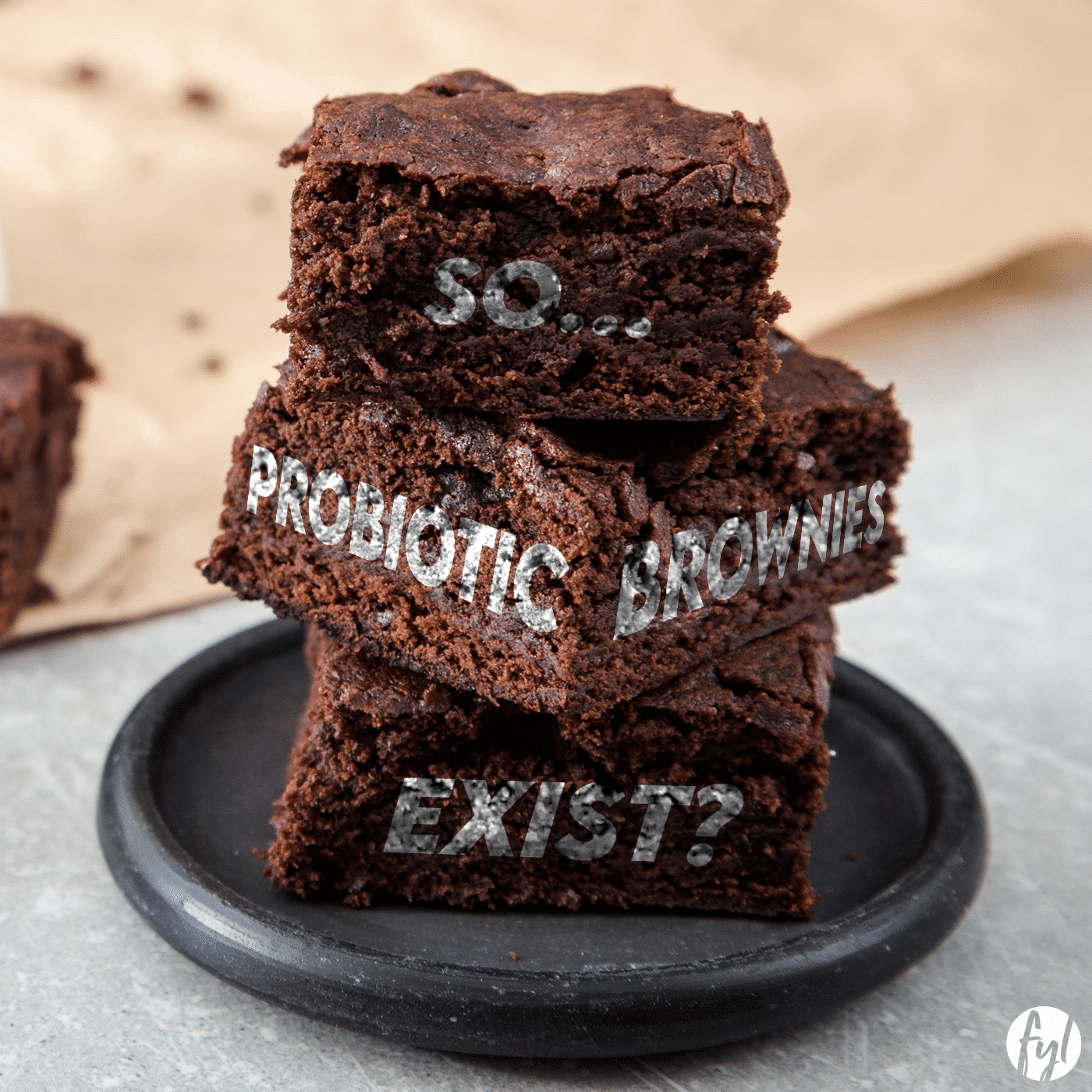Over the last few years, interest in gut health and ways to support a healthy gut microbiome has grown exponentially. With this peak in interest, a wide variety of supplements and functional foods have exploded in the marketplace. From this, probiotic fortified foods have emerged.
You may have noticed a variety of cereals, chips, snack bars, chocolate, gummy lollies and even tea bags with the words “With Added Probiotics” slapped across the front? This might have caught your eye, perhaps it’s even swayed you into purchasing the product out of hope it will give your gut bugs a boost. But the question remains… Are these products actually useful?
What Are Probiotics?
Probiotics are live microorganisms that may provide a health benefit if consumed in adequate amounts. Traditionally, the probiotics most commonly used or found in food products were different strains of the Lactobacillus species, with them being predominantly found in cold products such as yoghurt, kefir, kimchi and kombucha. This is because the Lactobacillus bacteria tend to be quite sensitive to heat, storage, transportation and over fermentation.
How Are Manufacturers Adding Probiotics to Other Foods?
With new technology, the food industry has started to use Bacillus Coagulans. This bacteria has been a bit of a game-changer for the food industry. It is a probiotic with some similar characteristics to Lactobacillus; however, it is much more robust.
Coagulans bacteria produce spores during their lifecycle that remain dormant through harsh conditions. This allows it to withstand extreme environments, including high heat during cooking and the highly acidic environment of the stomach. Because B. Coagulans is so robust, this has allowed for greater use of probiotic bacteria in a broader range of foods. Hello, chocolate brownies with added probiotics.
Does B. Coagulans Provide a Health Benefit?
Because B. Coagulans can survive manufacturing methods, storage, shipping, high heat and withstand the acidity of the stomach and bile acids – there is a good chance that it will make it to your gastrointestinal tract. When taken as a supplement, some literature says B. Coagluans might provide a benefit in alleviating bowel issues such as constipation, IBS and intestinal gas. However, as a whole, there is a general lack of evidence to support its purported benefits. More research is needed.
How is it Being Used?
Okay okay, so we have a probiotic that is being added to foods that may or may not provide a health benefit. Not super convincing, but let’s take a closer look at how it is being used.
From a food marketing perspective, consumers (yes, you) tend to associate probiotics and foods that contain probiotics with being healthy. With this robust probiotic bacteria, manufacturers are now able to cast the same positive view onto a much more extensive range of foods. Yay for them!
As mentioned earlier, B. Coagulans is being added to a variety of cereals, chips, snack bars, chocolate, gummy lollies and even tea bags. While some cereals (please do your label reading) and tea bags are likely to be relatively nutritious foods. Chips, chocolate, most snacks bars and gummy lollies are not healthful foods. They are what dietitians like to call ‘discretionary foods’ as they are high in sugar, fat and salt. It doesn’t matter if probiotics are added or the ingredients are “all-natural”, these are foods that should not be making up a large portion of your diet. In fact, foods that are high in saturated fat and sugar can actually be bad for your gut bacteria!
This is where, as a consumer, you need to be aware of the health halo effect. Do your due diligence and read the ingredients list and analyse the nutrition information panel. Be a discerning consumer!
In Summary
There is just a lack of evidence to really support if there is an actual benefit to consuming products with these added probiotics. Most of the products that contain B. Coagulansdon’t specify how much can be found in the food. Plus, there is no established reference range on how much you would need to consume and how regularly to obtain a health benefit, or if you would get one at all. Outside of that, the majority of the foods that have been fortified with B. Coagulans are discretionary foods.
If you are concerned about your gut health, these foods are unlikely the answer. A diet rich in plant foods such as fruit, vegetables, whole grains, legumes, nuts and seeds is the best way to support your gut bugs. If you want help improving your gut health, book a consultation to speak with one of our dietitians today.








It is great blog post. Helpful and Informative tips. I am always read your blog. I like it. Thanks for sharing these information with us.
Thanks!